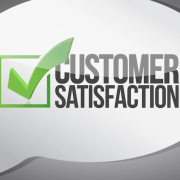Tempus Fugit – Time Flies (and So Do We, If We’re Not Careful)
As small business owners, we tend to pour everything we have into our work—our energy, our focus, and most importantly, our time. In the early stages, it’s all-hands-on-deck, just trying to get the business off the ground. Later, we’re so entrenched in the day-to-day that we forget to come up for air.
Before we know it, we’ve lost track of balance—personal time, family time, fun time. Life becomes a series of tasks and checklists, and somehow, months pass without us even noticing.
Sound familiar?
This isn’t a judgment. It’s a reality check. We don’t start businesses to feel burnt out and disconnected—but that’s exactly what happens when we let the routine take over. And routine, while necessary to a degree, can be the biggest thief of time.
There’s a Latin phrase that sums this up perfectly: Tempus Fugit – Time Flies.
Have you ever wondered why time seems to pass faster the older we get?
Remember when we were kids? We’d count down the days to summer vacation, convinced the school year would never end. Time was slow because we were always looking forward to something—birthday parties, beach trips, sleepovers, or even just the weekend.
But somewhere along the way, we lost that sense of anticipation.
As adults, life got complicated. We traded carefree afternoons for calendars full of meetings. Once work, marriage, kids, and obligations entered the picture, our lives became tightly scheduled. We bounce from task to task, appointment to appointment, email to email—and suddenly, entire seasons slip by unnoticed. “Didn’t we just take down the holiday lights?”
It’s not that we’re doing anything wrong—it’s that we’re doing so much, and so much of it is on autopilot. Even the boring, mundane stuff seems to move at lightning speed. We look up and wonder where the time went.
So, how do we slow it all down?
How do we break free from the rut of rinse-and-repeat? How do we reclaim a sense of balance, or at the very least, a little more joy in the journey?
Here are a few thoughts that might help:
1. Choose Joy—Deliberately
That doesn’t mean quitting your business to become a llama herder in Peru (though if that’s your dream, go for it). It means becoming more mindful about how you spend your time and energy. Are you doing things that bring fulfillment and joy? Or are you stuck in “should” mode?
Not every task is going to be thrilling, but if it makes you feel drained or resentful every time it pops up, ask yourself:
- Can I delegate this?
- Can I do it differently?
- Or can I let it go altogether?
As business owners, we sometimes forget that we can say no—or at least say “not me.”
2. Create More Milestones
We often save celebration for a handful of annual events: birthdays, anniversaries, holidays. That’s not nearly enough. Joy and anticipation shouldn’t be limited to Hallmark moments.
Start planning things—small and large—that give you something to look forward to. And no, it doesn’t have to cost a fortune.
- A quarterly weekend getaway
- A monthly dinner with friends
- A solo afternoon doing something you love
- A new project that inspires you rather than drains you
Even something as simple as hosting a potluck picnic at the park can be an event worth anticipating, especially if it brings together people you enjoy.
The more milestones you build into your life, the more opportunities you create for anticipation—and that is what makes time feel full, rich, and slow (in the best way).
3. Practice Conscious Living
We rush through life not because we want to, but because we aren’t fully present. Multitasking has become a badge of honor, but in reality, it fragments our focus and diminishes our experiences.
Start noticing your moments. Be present in them, even if it’s just for a few minutes a day.
- Savor your morning coffee (instead of sipping while doom-scrolling)
- Watch the sunset (without checking your email between colors)
- Take a walk without your phone (yes, it’s still possible!)
When you become more aware of the minutes, they stop slipping away unnoticed.
We started this article with one Latin phrase—Tempus Fugit—and we’ll end with another: Carpe Diem.
Seize the Day.
But let’s not just seize it. Let’s design it, build it, and live it—on purpose. You didn’t start your business to become a prisoner of it. You started it for freedom, flexibility, passion, and impact. So if you’re feeling like time is flying by without any joy, maybe it’s time to hit pause and reevaluate how you’re spending your most valuable asset: your time.
So here’s your invitation:
Let’s talk.
If you’re tired of feeling like time is slipping through your fingers—if you want to get back to enjoying your business and your life—Concierge Business Solutions® can help.
We specialize in helping entrepreneurs like you build businesses that run more smoothly, more efficiently, and with you at the helm—not chained to the oars.
And if you’re ready to take it a step further, check out our Freedom by Design training series—an on-demand course packed with practical tools, systems, and real-world strategies that teach you how to create a business that runs itself… so you don’t have to.
Or, if you’d prefer to talk one-on-one first:
![]() Schedule a free consultation with us here.
Schedule a free consultation with us here.
Because time flies—and you deserve to spend yours doing what you love.





 And trust me, you’re not alone. We’ve ALL been there. Most entrepreneurs start as the technician, the doer, the magic-maker. But when you’re running the whole circus? Burnout is inevitable. You’re not building a business—you’re building a hamster wheel.
And trust me, you’re not alone. We’ve ALL been there. Most entrepreneurs start as the technician, the doer, the magic-maker. But when you’re running the whole circus? Burnout is inevitable. You’re not building a business—you’re building a hamster wheel.

 Running a business without a plan is a lot like trying to drive cross-country without GPS. You might eventually get there, but you’ll take wrong turns, waste time, burn fuel, and end up a whole lot more stressed than you needed to be.
Running a business without a plan is a lot like trying to drive cross-country without GPS. You might eventually get there, but you’ll take wrong turns, waste time, burn fuel, and end up a whole lot more stressed than you needed to be.



 Retainer Client Management: Automate recurring invoices, track hours, and stop manually calculating your monthly service clients.
Retainer Client Management: Automate recurring invoices, track hours, and stop manually calculating your monthly service clients. We know switching systems can feel overwhelming. But trust us, once you see what Essential Elements™ can do, you’ll wonder how you ever lived without it. That’s why we’re making it easier than ever to take the plunge.
We know switching systems can feel overwhelming. But trust us, once you see what Essential Elements™ can do, you’ll wonder how you ever lived without it. That’s why we’re making it easier than ever to take the plunge.
 We’ve always been proud of our team, but we wanted to do more to show our appreciation. This year, we introduced two new benefits: leased company cars and health care coverage.
We’ve always been proud of our team, but we wanted to do more to show our appreciation. This year, we introduced two new benefits: leased company cars and health care coverage.


